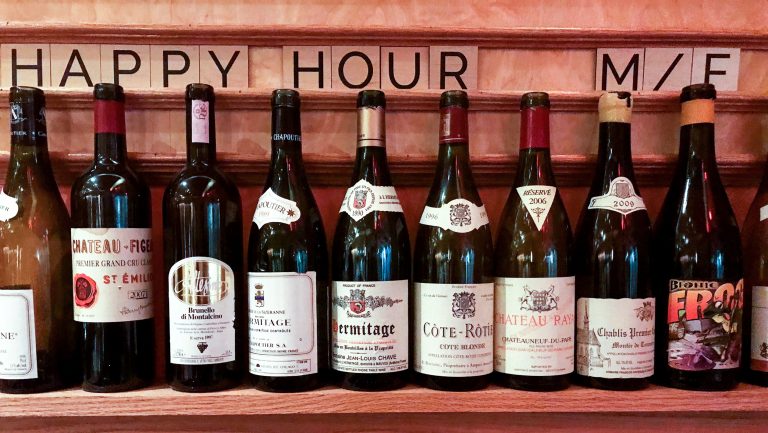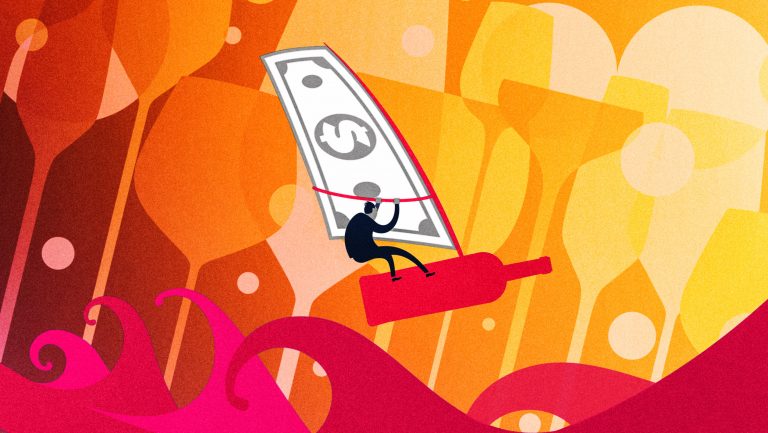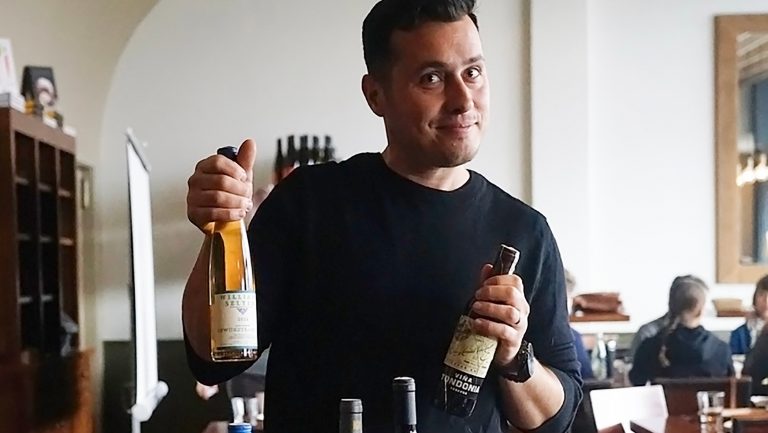In some parts of the drinks business, there’s a logical progression: sales reps become district managers, somms become beverage directors. But for plenty of other positions, there’s no clear growth trajectory—and that can be a good thing.
It may sound unconventional, but working across industry lines can help you get ahead quicker than progressing in similar roles. SevenFifty Daily spoke with industry veterans about how moving around the industry improved their knowledge base, opened up new opportunities, and equipped them with an expanded skill set.
Here’s why you should consider this strategy:

Don’t miss the latest drinks industry news and insights. Sign up for our award-winning newsletters and get insider intel, resources, and trends delivered to your inbox every week.
1. To Strengthen Your Understanding of the Industry
While educating yourself on every rootstock, terroir, and producer in the world is both valuable and impressive, your expertise must go beyond tech sheets. By working in more than one job category, you’ll gain an advantage in identifying who your audience is and learning what will help their business.
“Having been a buyer for a serious wine store is invaluable now that I’m back on the other side promoting the Wasserman portfolio,” says Paul Wasserman of Becky Wasserman & Co., a Burgundy-based exporter of fine wines to the U.S. market. “One thing I always do is look at restaurant wine lists and retail shelves. It tells me what kind of buyers I’m dealing with, what they know, what holes I could potentially fill, and who they have privileged relationships with.”
Multi-tier experience can also make you more attractive to potential employers, who recognize that you’ll have a broader grasp than other candidates of how the industry works. “When I’ve hired for supplier-level [producer] sales, a résumé that displays experience in multiple tiers and channels rises to the top,” says Eric Southern of Rhys Vineyards, a Los Gatos, California, winery that features seven estate vineyards in the Santa Cruz Mountains and Anderson Valley. “You gain an understanding of what your partners on the wholesale level face, and you’re better able to create programs and provide support that address those challenges.”
Even outside sales, exposure to different parts of the business can help further other projects you pursue and improve the quality of your work. “I always knew I wanted to get into the writing side of the wine industry, but there’s no way I could’ve gotten to where I am now without the connections and knowledge I obtained while working retail,” says Vicki Denig of Verve Wine, a New York City–based retail store, who also writes for SevenFifty Daily. “I was really able to learn exactly how the industry works, as well as to create strong relationships with importers, distributors, and sales reps across the city.”

Do Everything Better
What’s holding you back? Recharge, refresh, and get ready to make 2019 your strongest year yet
2. To Expand Your Network
It’s no secret that your rolodex is your best weapon. Those who remain in the same part of the business may limit their networking potential. For example, if you’re in marketing or you work in a tasting room, you probably don’t cross paths with sales reps or retail buyers on a daily basis. Finding ways to interact with people in those positions can lead to new ideas and potential new jobs.
“As someone who loves change and chaos, I’ve worked many wine roles,” says Renee Main, a former district manager for Kobrand, a leading New York–based importer and marketer of wines and spirits, and currently a wine consultant in the San Francisco area. “Switching between different roles expanded my network in ways that always set me up for my next chapter.”
Working with a cross section of professionals can also bolster your confidence. “Getting to know people on the journalism side has been helpful for me in that now I’m not intimidated by them,” says Erik Tennyson, a San Francisco–based contributor to Wine & Spirits Magazine, and a bartender at Liholiho Yacht Club, a Hawaiian-themed restaurant there. “After reviewing bars and restaurants in my writing career, I understand that fellow writers—no matter how famous or influential they have become—are just like anyone else who really enjoys good food and drink.”
3. To Learn Humility
If you’re excelling in one job, it’s easy to slip into cruise control, going through the motions but not learning anything new. Making the jump to a new role can jolt you into learning mode, as you’re forced to tackle new challenges.
“As a sommelier, when you approach a table the diner is always going to purchase from you. I felt that when I transitioned to wholesale I could sell the wines I loved. It turns out, not many people like the wines I really love,” says Kayne Guzowski of the San Francisco–based importer and distributor of fine wine and spirits Maritime Wine Trading Collective. “To be successful in this business, you need to put your personal preferences aside and realize that no matter how high up in the restaurant side of the industry you are, as a wholesaler you start again at the bottom.”
Switching from buyer to seller can be as drastically mind-altering as changing industries altogether. But while the challenge of such a transition is undeniable, overcoming the hardships will force you to learn, and to appreciate others who are trying to do the same.
“That was the most humbling job I have ever held,” says Dejah Overby of Oakland, California’s newest culinary gem, Perle Wine Bar, on her previous switch from the restaurant floor to Bay Area wine and spirits sales. “It really makes you think about your relationships with people, about different angles, and makes you work on yourself.”
4. To Find New Career Inspiration
The more you learn about the various niches within the drinks business, the better equipped you’ll be to carve out something new for yourself. That knowledge can spark inspiration for your next big thing, says Hiram Simon, founder of WineWise, a distributor of small-production European wines based in Berkeley, California. Simon worked in direct sales for several years, honing his sales skills and developing relevant relationships, before launching his own import company.
“After all this,” says Simon, “I felt equipped to launch WineWise in 1989, figuring that choosing good wines was the easiest part of the challenge, as I had already had plenty of experience cultivating and taking care of customers, and keeping communication clear and respectful with colleagues, customers, and suppliers.”
Working in companies of different sizes can help you further define your path. Brian McGonigle, the founder of the importer Indie Wines, based in San Francisco, as well as a private wine storage and event space, SF Wine Center, worked for years for large multinational companies like Diageo, Constellation, and LVMH. He found that those experiences gave him a strong base in both traditional marketing and brand management. Those skills equipped him to launch his own businesses in 2005. Says McGonigle, “When I realized I was better suited to entrepreneurship, that extensive education with the largest drinks companies in the world helped me successfully navigate the challenges of the three-tier system—compliance, building a sales team, and marketing a new innovative wine business.”

Dispatch
Sign up for our award-winning newsletter
Don’t miss the latest drinks industry news and insights—delivered to your inbox every week.
Julie Albin is a wine and spirits journalist based in San Francisco. Her work has appeared in The Press (San Francisco Chronicle), Whisky Advocate, Liquor.com, Drink Me magazine, SOMA magazine, Grape Collective, and more. She holds the WSET Diploma certification and has produced spirits events, wine courses, and on-premise programming. In her spare time, she loves to volunteer at the San Francisco SPCA.







